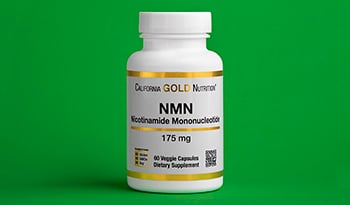Beneficiile pentru sănătate ale complexului de vitamina B

Vitaminele B sunt nutrienți esențiali necesari pentru a construi celule sănătoase și sunt implicate în multe procese biologice cheie din organism, inclusiv metabolismul energetic. Acești nutrienți solubili în apă s-au dovedit a fi critici pentru funcția creierului, inimii, sistemului imunitar, ficatului și a oricărei alte celule sau țesut din corpul uman. Deși se găsește într-o varietate de alimente, în special legume cu frunze verzi și ouă, suplimentarea are sens pentru a asigura un aport zilnic optim al acestor nutrienți.
Ce este un complex de vitamine B?
Există opt vitamine oficiale B. Acestea includ tiamina (B1), riboflavină (B2), niacină (B3), acid pantotenic (B5), piridoxină (B6), biotină (B7)), folat (B9)și cobalamină (B12). Un complex de vitamine B se referă la un supliment alimentar care conține o combinație de două sau mai multe vitamine B. În timp ce fiecare vitamină B are un rol unic în nutriția umană, ele lucrează împreună în multe funcții vitale. Prin urmare, există o sinergie și o interacțiune extraordinară atunci când sunt utilizate împreună. Suplimentele complexe de vitamine B sunt adesea promovate pentru capacitatea lor de a îmbunătăți producția de energie, de a preveni acumularea de metaboliți intermediari în organism, cum ar fi homocisteina, care pot provoca leziuni ale celulelor și țesuturilor, susțin funcția imună, compensează efectele negative ale stresului, stimulează starea de spirit și promovează reacțiile de detoxifiere.
Iată o scurtă descriere a fiecărei vitamine B și a rolurilor sale biologice cheie.
Tiamină (B1)
Tiamina a fost prima vitamină B descoperită, de unde și denumirea sa ca vitamina B 1 . Tiamina este esențială pentru producerea adecvată de energie în fiecare celulă a corpului, dar mai ales în inimă și creier. Deficitul sever de tiamină a fost descoperit ca fiind cauza unui sindrom cunoscut sub numele de „beriberi”. Simptomele includ confuzie mentală, pierderea musculară (beriberi uscată), retenție de lichide (beriberi umedă), hipertensiune arterială, dificultăți de mers și tulburări cardiace. Nivelurile de tiamină sunt epuizate de multe medicamente, în special diuretice utilizate pentru hipertensiunea arterială.
Riboflavină (B2)
Riboflavina funcționează în două enzime foarte importante implicate în producerea de energie. Deficitul de riboflavină se caracterizează prin crăparea buzelor și a colțurilor gurii; o limbă inflamată; tulburări vizuale, cum ar fi sensibilitatea la lumină și pierderea acuității vizuale; formarea cataractei; arsură și mâncărime ale ochilor, buzelor, gurii și limbii; și alte semne de tulburări ale membranelor mucoase. Nivelurile scăzute de riboflavină au fost legate de unele boli cronice.
Niacină (B3)
Niacina, precum și o altă formă de vitamina B3, nicotinamidă, funcționează ca parte a unei enzime care este crucială pentru viață. Când nivelurile de vitamina B3 sunt scăzute, aceasta poate duce la o afecțiune cunoscută sub numele de pellagra care se caracterizează prin prezența dermatitei, diareei și demenței. Niacina este adesea suplimentată pentru a susține nivelurile de colesterol la doze mai mari (de exemplu, 2-3 g zilnic), în timp ce niacinamida este adesea recomandată pentru a susține sănătatea articulațiilor. La doze mai mari de 100 mg, niacina provoacă adesea înroșirea pielii, în timp ce nicotinamida nu.
Acid pantotenic (B5)
Acidul pantotenic este utilizat în fabricarea coenzimei A (CoA) și a proteinei purtătoare de acil (ACP) - doi compuși care joacă un rol critic în utilizarea grăsimilor și carbohidraților în producția de energie, precum și în fabricarea hormonilor suprarenali și a globulelor roșii. Suplimentarea cu acid pantotenic este adesea recomandată de medicii orientați nutrițional pentru a susține funcția suprarenală și a combate stresul.
Piridoxină (B6)
B6 este o vitamină B extrem de importantă implicată în formarea proteinelor corpului și a compușilor structurali, transmițători chimici în sistemul nervos, globule roșii și substanțe asemănătoare hormonilor cunoscute sub numele de prostaglandine care controlează multe funcții corporale. Piridoxina este, de asemenea, critică în menținerea echilibrului hormonal și a funcției imune adecvate. Deficitul de vitamina B6 se caracterizează prin depresie, convulsii (în special la copii), intoleranță la glucoză, anemie, afectarea funcției nervoase, crăparea buzelor și limbii și seboree sau eczemă.
Biotină (B7)
Biotina funcționează în fabricarea și utilizarea grăsimilor și aminoacizilor. O deficiență de biotină la adulți este caracterizată de piele uscată, solzoasă; greață; anorexie; și seboree. La sugarii sub vârsta de șase luni, simptomele sunt dermatita seboreică (capacul leagănului), erupția cutanată persistentă și alopecia (căderea părului). Biotina este o recomandare populară pentru creșterea rezistenței unghiilor și promovarea părului sănătos.
Folat (B9)
Acidul folic, cunoscut și sub numele de folat, folacin și pteroilmonoglutamat, funcționează împreună cu vitamina B12 în multe procese ale corpului și este esențial pentru diviziunea celulară, deoarece este necesar în sinteza ADN-ului. Fără acid folic celulele nu se împart corect. Deficitul de acid folic în timpul sarcinii a fost legat de mai multe defecte congenitale, inclusiv defecte ale tubului neural, cum ar fi spina bifida. Deficitul de acid folic este, de asemenea, legat de depresie, ateroscleroză și osteoporoză. Acidul folic, vitamina B12și o formă de aminoacid metionină cunoscută sub numele de SAMe (S-adenosil-metionină) funcționează ca „donatori de metil”. Ei transportă și donează molecule de metil pentru a facilita reacțiile, inclusiv fabricarea ADN-ului și a neurotransmițătorilor creierului. Acidul folic și alți donatori de metil reduc concentrațiile corporale de homocisteină - un intermediar toxic în organism care a fost implicat într-o varietate de afecțiuni de sănătate, inclusiv ateroscleroza, osteoporoza și anumite forme de cancer.
Cobalamina (B12)
Vitamina B 12 funcționează cu acidul folic în multe procese ale corpului, inclusiv sinteza ADN-ului, a globulelor roșii și a teaca izolatoare (teaca de mielină) care înconjoară celulele nervoase și accelerează conducerea semnalelor împreună cu celulele nervoase. Vitamina B12 se găsește în cantități semnificative numai în alimentele de origine animală. Prin urmare, se pare că este foarte important ca vegetarienii să-și completeze dieta cu vitamina B12. O deficiență de vitamina B12 va duce la anemie și va afecta creierul și sistemul nervos pentru a produce simptome precum amorțeală, senzații de ace sau senzație de arsură la picioare, precum și o funcție mentală afectată care la vârstnici poate imita boala Alzheimer. În plus față de anemie și simptome ale sistemului nervos, o deficiență de vitamina B12 va duce, de asemenea, la o limbă roșie netedă și moale; și diaree datorită faptului că celulele care se reproduc rapid, cum ar fi cele care căptușesc gura și întregul tract gastro-intestinal, nu se vor putea reproduce fără vitamina B12.
Complexul de vitamina B Beneficii pentru sănătate
Suplimentele complexe de vitamina B au fost dovedite în cercetările clinice că susțin nutrițional multe probleme de sănătate. Dacă o persoană are oricare dintre afecțiunile enumerate mai jos, poate beneficia de administrarea unui supliment care conține vitamine B:
- Dependența de alcool
- Afecțiuni de cancer
- Depresie și anxietate
- Diabetul zaharat
- Persoane vârstnice
- Niveluri crescute de homocisteină
- Dureri de cap (tensiune sau migrenă)
- Dificultăți de învățare
- Funcție imună scăzută
- Vindecare slabă a rănilor
- Sarcina și alăptarea
- Sindromul premenstrual
- Fumători
- Stres
- Vegani și vegetarieni
Iată o serie de exemple de medicamente care pot duce la niveluri scăzute de vitamine B specifice:
- Medicamentele pentru tensiunea arterială și medicamentele pentru chimioterapie pot scădea nivelurile B1 ale unei persoane.
- Medicamentele anti-convulsii utilizate pentru epilepsie pot scădea nivelurile B3, B6și folat.
- Anumite medicamente pentru cancer pot scădea nivelurile de folat.
- Anumite antibiotice și medicamente pentru ulcere, diabet sau boala de reflux gastroesofagian sau GERD pot scădea nivelurile B 12 .
Declarație de declinare a responsabilității:Acest blog nu are ca scop să ofere un diagnostic.

















































































 Cuprins
Cuprins















